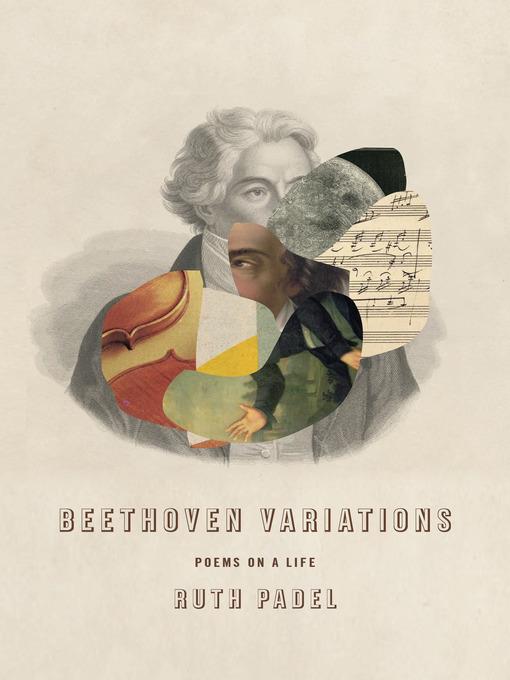
Beethoven Variations
Poems on a Life
کتاب های مرتبط
- اطلاعات
- نقد و بررسی
- دیدگاه کاربران
نقد و بررسی

September 1, 2020
As her subtitle suggests, poet/scholar Padel focuses less on Beethoven's grandly thunderous music than on the experiences and psyche of Beethoven himself, much as she did with Darwin: A Life in Poems. (Interestingly, she is a descendant of Darwin, and her great-grandfather studied with one of Beethoven's pupils.) Padel opens with Beethoven's unpropitious upbringing, as he "writes concertos/ pitching the wonders of modulation/ against his father's blows"; later, savvy Mozart is indifferent to the young man's playing until he improvises: "Watch out for this boy. He'll give the world/ something to talk about." The writing deepens with the story, as Beethoven's rise to heroic stature intensifies his world-wariness ("always that splinter of ice in the heart/ protecting the work, and the safety of not/ being loved") and brings the tragedy of hearing loss ("If you can't hear what you're doing/ ... where does the newness go?"). Significantly, Padel weaves in her experiences of playing Beethoven with her family, a gracious reminder that his music keeps ringing through our lives. VERDICT A solidly appealing work for fans of poetry, classical music, and biography.
Copyright 2020 Library Journal, LLC Used with permission.

March 22, 2021
Balancing a historian’s fidelity to archives and a musician’s passion for composition, Padel (Alibi) offers a lavish poetic biography of Beethoven from his birth in 1770 to his death in 1827. The psychological and musical effects of the composer’s deafness are sensitively rendered: “The almost-nothing bone,/ that little house of hearing... the new/ shocked calm of Is it true. Is this/ what it sounds like, going deaf?” Drawing on letters, diaries, and the handmade “Conversation Books” (in which those Beethoven encountered wrote notes to him once he lost his hearing), Padel tracks “the domestic minutiae against which his late style—introspective, cosmic, radical—evolved.” The tumultuous inventiveness of his late style (“havoc on the brink, a jackhammer shattering the night and soaring past world-sorrow”) emerges in the contexts of Napoleon’s violent rise to power and Beethoven’s own illnesses, lost loves, and legal battle with his sister-in-law (whom he called the Queen of the Night) over custody of his late brother’s son, Karl. Padel grows increasingly intimate with her subject, often addressing him directly, and even attempting to intervene in his self-destructive spiral, “trying to cancel/ the mathematics of strain.” Aficionados of classical music may draw inspiration from this ambitiously conceived and realized reconsideration of Beethoven’s genius.

























دیدگاه کاربران